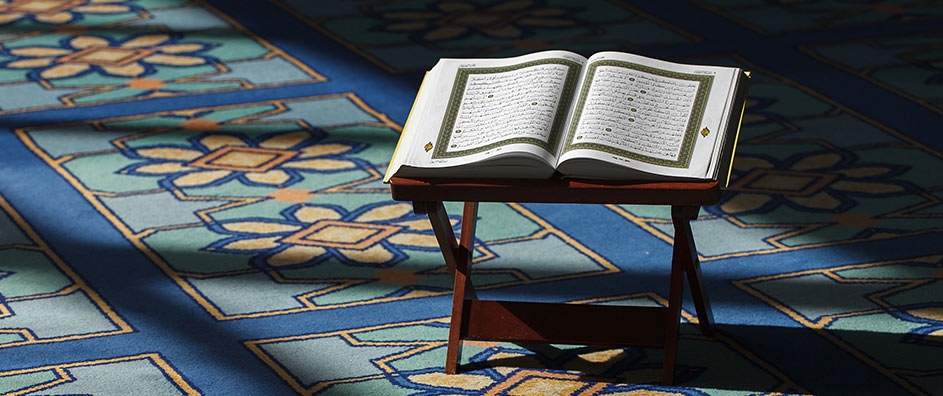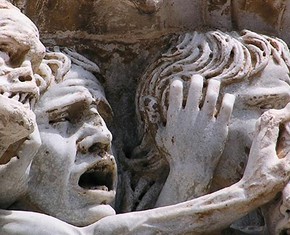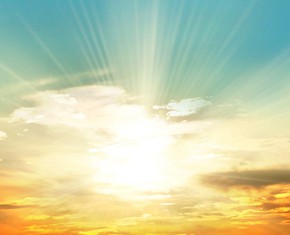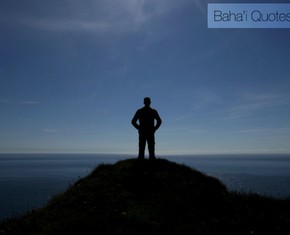The views expressed in our content reflect individual perspectives and do not represent the authoritative views of the Baha'i Faith.
Common sense dictates that when a major new prophet appears, it will not be to bring back an old religion. After all, new prophets renew religion.
As Jesus said:
Neither do men put new wine into old bottles: else the bottles break, and the wine runneth out, and the bottles perish: but they put new wine into new bottles, and both are preserved. – Matthew 9:17.
Every world religion has a vision of the future. So does Islam. Islam has two major divisions: Sunni and Shia. (There are more sects, of course.) Let’s take a look at a few Islamic prophecies from some Shia Islamic texts.
Both Sunni Islam and Shia Islam refer to the future world-messiah as the Mahdi (which means the “rightly-guided” one). However, Shia Islam refers to the Mahdi as the Qaʾim (which means “the Ariser,” or the “Resurrector”)—the current Hidden Imam who will arise on the Last Day.
A quick reminder: The first step to “figuring out prophecy” is “If impossible, then not literal.” Often, a prophecy is not literal, and therefore is figurative and thus symbolic. But prophecies can be literal without involving a stretch of the imagination. Let’s look at a few Islamic prophecies that may be taken at face value, in that they can be regarded as literal, rather than figurative, in meaning. These texts are not widely known in the West and, in some cases, have been mistranslated into English in the past.
Let’s start with those Shia traditions cited by Baha’u’llah, who, in the following passage, quotes traditions that explicitly foretell and promise the advent of a messianic figure, who will bring a new religion, a new holy book, and a new set of laws:
Notwithstanding all the verses of the Qur’an, and the recognized traditions, which are all indicative of a new Faith, a new Law, and a new Revelation, this generation still waiteth in expectation of beholding the promised One who should uphold the Law of the Muḥammadan Dispensation. The Jews and the Christians in like manner uphold the same contention. …
In the “Aválím,” an authoritative and well-known book, it is recorded: “A Youth from Baní-Háshim shall be made manifest, Who will reveal a new Book and promulgate a new law;” then follow these words: “Most of His enemies will be the divines.” In another passage, it is related of Ṣádiq, son of Muḥammad, that he spoke the following: “There shall appear a Youth from Baní-Háshim, Who will bid the people plight fealty unto Him. His Book will be a new Book, unto which He shall summon the people to pledge their faith. Stern is His Revelation unto the Arab. If ye hear about Him, hasten unto Him.” – Baha’u’llah, The Book of Certitude, pp. 239–240, 241.
The Aválím Baha’u’llah refers to here is a massive collection of Shia traditions, said be over 100 volumes in the original. The few volumes published so far do not include the volume on the Qaʾim, which likely contains the tradition that Baha’u’llah cites above.
A well-credentialed and highly regarded scholar, Armin Eschraghi, puts Baha’u’llah’s statement into perspective, acknowledging that most Shia Muslims do not expect that the Mahdi (Qaʾim) will bring a new religion—but that the Bab, the forerunner and herald of Baha’u’llah, most certainly did:
The Twelver Shīʿī Qāʾim is traditionally believed to render Islam victorious over all other Faiths, literally establishing “God’s kingdom on earth.” It is not expected that he would abrogate the Islamic sharīʿa, let alone establish a new one. Bābism, unlike messianic or millenarian movements, who are often considered antinomian, in contrast includes a whole new set of laws. … He [the Bab] also quoted canonical ḥadīth stating that the Mahdī would “appear with a new Cause and a new book.”
Eventually, when in 1847 he made explicit his claim to be the Mahdī himself and not a mere emissary, the Bāb wrote his major work, Bayān-i Fārsī, and laid down his new sharīʿa, abrogating the Islamic one. He saw the Mahdī conversely not as the end of history but rather as the inaugurator of a new cycle in religious history, bearer of a new revelation from God. – Armin Eschraghi, “Promised One (mawʿūd) or Imaginary One (mawhūm)?” in Unity in Diversity: Mysticism, Messianism and the Construction of Religious Authority in Islam, pp. 111–135.
Similarly, religious historian Moojan Momen refers to these few Shia traditions that explicitly state that Mahdī (Qāʾim) will establish a new religion:
He will come with a new Cause—just as Muhammad, at the beginning of Islam, summoned the people to a new Cause—and with a new book and a new religious law (Sharī’a), which will be a severe test for the Arabs. – Moojan Momen, An Introduction to Shi‘i Islam: The History and Doctrines of Twelver Shi‘ism, p. 169.
Dr. Momen, in a personal communication (March 11, 2017), provides the text and translation of this “new Cause” tradition:
When the Qāʾim arises, he will come with a new Cause — just as Muhammad, at the beginning of Islam, summoned the people to a new Cause. – Translated from the original Arabic by Moojan Momen. Arabic text: al-Majlisī, Biḥār al-Anwār [“Ocean of Lights”] Vol. 52, p. 338.
This key Shia Islamic prophecy may be the single most important concept among the myriad prophecies that point to the future of faith. The important thing to remember is this: the Bab and Baha’u’llah, Baha’is believe, fulfill those Islamic prophecies.
You May Also Like
Comments

















grandfather Saleh was one of the first Baha’is in Ceylon.. introduced to the Cause in the late 1940’s by a pioneer from India, Dr. Lukhmani pioneered there on advice of Guardian. he hails from a Muslim Malay family. grandfather who was well versed in the Islamic traditions spent time reciting Islamic prayers and verses at the Grand Mosque. In the deep corner of his heart he was looking for the return of Imam Mahdi. When he found the Faith, he was very convinced of the fulfillment of the prophecies in Islam. His acceptance of the Bahá’i Faith drew immediate opposition from ...his family, relatives, friends, and foes alike. he was unmovable as a mountain.